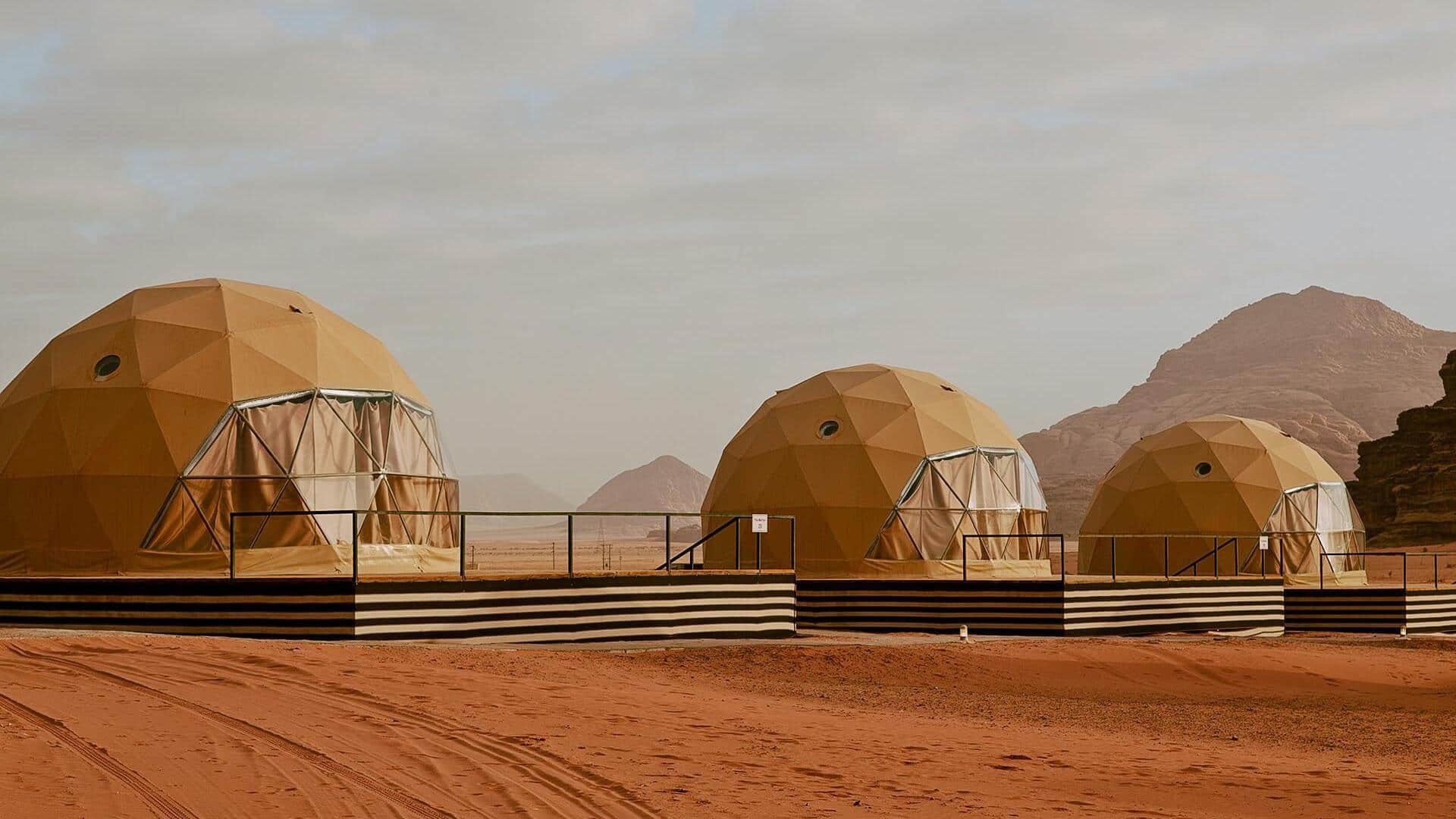
Mongolia's Mars Camp will let you experience life like astronauts
What's the story
A 'Mars camp' is being developed in Mongolia's Gobi Desert. The MARS-V Project aims to give tourists an authentic taste of life on the red planet. The initiative is being led by MARS-V, a non-governmental organization based in Ulaanbaatar, the capital of Mongolia. The team plans to construct a full-fledged Mars analog station in the Gobi Desert and expects to welcome the first tourists by 2029.
Unique geography
Why Gobi Desert?
The Gobi Desert's unique geography and climate closely resemble those of Mars. The region is characterized by extreme temperature variations, from scorching heat to bone-chilling cold. Its reddish soil, rich in iron oxide, gives it a distinctly Martian look. This combination of remoteness, altitude, and temperature makes the perfect training ground for scientists and astronauts alike.
Survival challenge
Preparing for Martian life
The MARS-V Project also sees an opportunity for tourism. "Your objective is to survive in an environment that is very, very isolated," said Enkhtuvshin Doyodkhuu, CEO of MARS-V. He added that participants will have to pass physical and psychological tests before undergoing a three-month virtual astronaut training program covering everything from oxygen protocol to isolation psychology.
Expedition details
Journey to the site
Once in Mongolia, participants will undergo three days of drills in Ulaanbaatar before embarking on a 10-hour journey by bumpy road to the site. The journey takes them away from civilization through stretches of pale-red dust. "This feeling of vastness, of endless empty space — the Gobi really gives you that Mad Max kind of feeling," Doyodkhuu said.
Daily routine
Meditation is key part of the program
Life at the Mars camp is modeled on a strict daily regimen that real astronauts might face. Each day starts with vitamins, meditation, exercise, breakfast, and a team briefing for the day ahead. "Meditation has to be a big part of the program," Doyodkhuu said. He also stressed on the importance of this aspect as they don't really know how long-term isolation would affect psychology of Mars pioneers.
Mission activities
Challenges and tasks at the camp
Days at the Mars-V camp are filled with challenges and tasks. For instance, the crew may take a rover for geological mapping or soil sampling. Communication with "Earth" (the Mars-V mission support team) is on a timed delay to mimic interplanetary lag. The simulations are conducted between October and March in harsh winter conditions when Gobi freezes solid.
Survival sustenance
Meals at the camp
Meals at the Mars camp will be freeze-dried Mongolian dishes, such as rehydrated dumplings or mutton stews. These are designed to mimic astronaut rations while honoring local culture. The team from MARS-V plans to hide all external support out of sight for maximum realism. "Compared to an Arctic expedition, this is controlled," Doyodkhuu said, adding if there was any real chance of death, they'd stop the simulation.